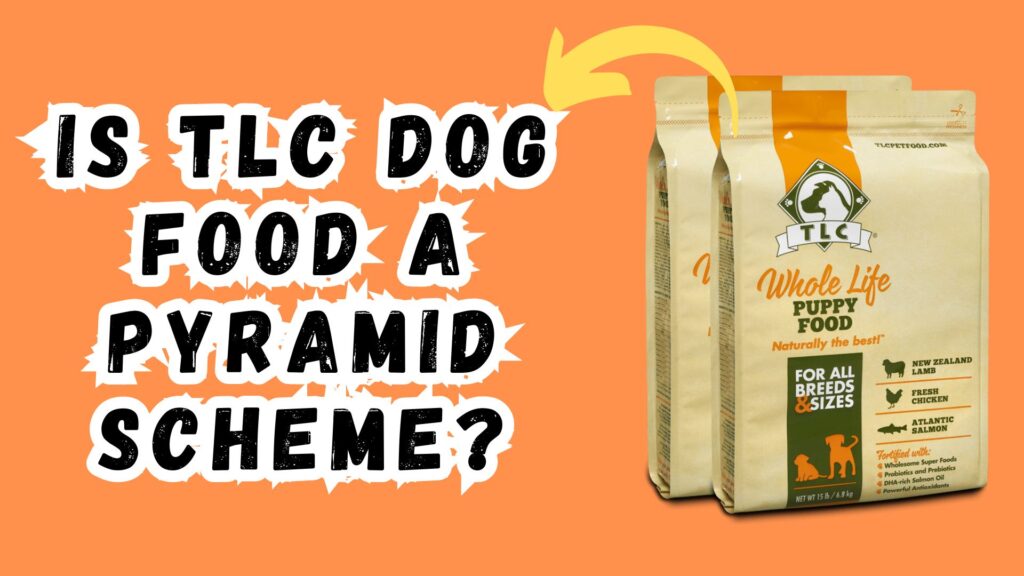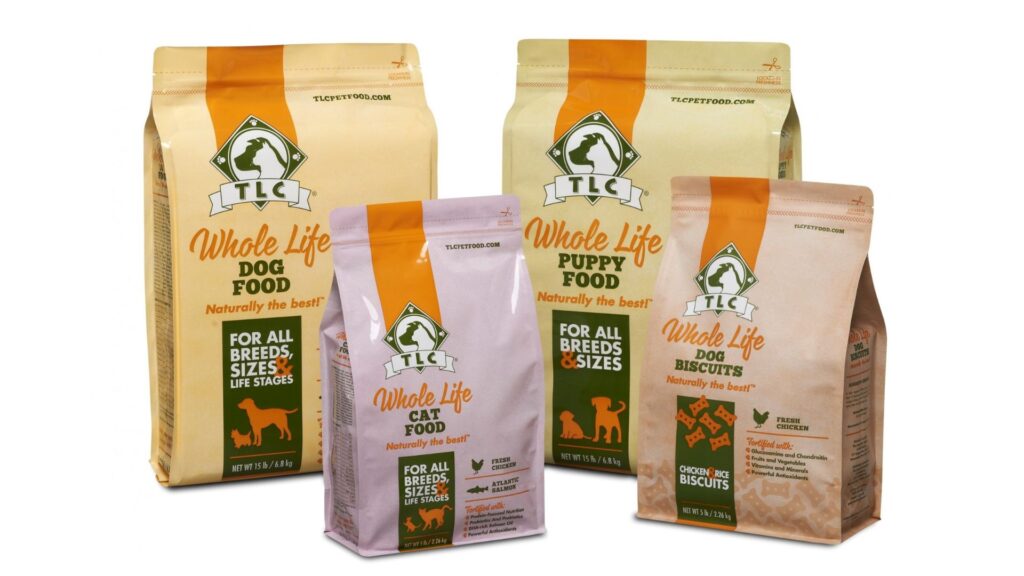TLC Dog Food has made a significant impact in the pet nutrition industry in the United States, boasting a wide array of products tailored to meet the specific needs of dogs of all breeds and ages.
As a company that prides itself on delivering high-quality dog food directly to consumers’ doors, TLC has grown in popularity, fostering a loyal customer base.
However, with the rise of multi-level marketing (MLM) businesses in various sectors, questions have surfaced regarding the legitimacy of TLC Dog Food’s business practices.
This article aims to investigate these concerns by exploring whether TLC Dog Food is involved in a pyramid scheme.

Understanding Pyramid Schemes
A pyramid scheme is a business model that recruits members via a promise of payments or services for enrolling others into the scheme, rather than supplying investments or selling products.
As recruiting multiplies, it becomes quickly impossible to recruit the necessary number of new participants, leading to a collapse of the scheme, and most members losing their money. In the U.S., pyramid schemes are illegal, and they often masquerade as legitimate MLM businesses.
To distinguish a legitimate multi-level marketing (MLM) operation from a pyramid scheme, one must look at the company’s revenue source.
A genuine MLM strategy relies on actual sales of goods and services to consumers, whereas a pyramid scheme primarily earns money through the recruitment of new members.
Key indicators of a pyramid scheme include a focus on recruitment over sales, promises of high returns in a short period, and a requirement to purchase expensive starter kits or inventory to join.
You may also like reading about: Is Life’s Abundance Dog Food a Pyramid Scheme?
Analysis of TLC Dog Food’s Business Model
TLC canine food operates by selling its products directly to consumers through an online platform, eliminating traditional retail intermediaries. This direct-to-consumer model allows TLC to maintain control over its product quality and customer service.
The company also employs a referral system, where existing customers can refer new customers, earning discounts or credits toward future purchases.
The analysis of whether TLC Dog Food focuses more on product sales or recruitment is crucial. The company asserts that its main revenue comes from product sales, with the referral program serving as an additional incentive for customer loyalty rather than a primary revenue stream.
Compensation for referrals is typically in the form of product discounts rather than cash payouts, which aligns more closely with typical retail reward programs rather than MLM compensation structures.

Comparison with Legitimate Companies and Pyramid Schemes
To better understand the positioning of TLC Doggy Food within the industry, a comparative analysis with both legitimate MLM companies and known pyramid schemes is beneficial.
This comparison will highlight the operational nuances that distinguish ethical business practices from fraudulent schemes.
| Aspect | TLC Dog Food | Legitimate MLM Companies | Pyramid Schemes |
|---|---|---|---|
| Primary Revenue Source | Product sales | Product sales | Recruitment fees |
| Compensation Structure | Referral discounts | Commissions on sales | Payments for recruitment |
| Product Focus | High | High | Low or nonexistent |
| Recruitment Emphasis | Low | Moderate to high | Very high |
| Transparency | High | Variable | Low |
| Legal Standing | Compliant | Mostly compliant | Often illegal |
Key Differences and Similarities:
- Revenue Source: Like legitimate MLMs, TLC Dog Food’s revenue is primarily from actual product sales, not recruitment.
- Compensation: TLC’s model of offering discounts for referrals aligns more closely with customer loyalty programs than with the MLM structure of commission-based compensation.
- Product Focus: Both TLC and legitimate MLMs maintain a strong emphasis on product quality and customer satisfaction, contrasting sharply with pyramid schemes, which often lack a genuine product offering.
- Recruitment Emphasis: Unlike pyramid schemes that focus heavily on recruitment for revenue generation, TLC maintains minimal emphasis on recruiting new members.

Consumer Reviews and Testimonials
Consumer feedback for TLC Dog Food generally paints a positive picture of the brand’s impact on pet health and customer satisfaction. Many testimonials commend the quality of the dog food, noting improvements in their pets’ coat, digestion, and overall health. The convenience of direct home delivery and the freshness of the products are repeatedly praised.
However, there are some criticisms related to business practices. A few consumers have expressed dissatisfaction with the customer service, particularly regarding the handling of delivery issues and the response time to customer inquiries.
These complaints, though relatively minor and infrequent, suggest areas where TLC could enhance its operations to ensure better customer experiences.
Legal and Ethical Considerations
As of the latest updates, there have been no major legal cases or government investigations into TLC Dog Food related to accusations of operating a pyramid scheme. This clean legal track record supports the company’s claim of being a legitimate business focused on selling quality dog food products rather than recruiting distributors.
From an ethical standpoint, TLC Dog Food appears to uphold high standards in its business operations. The company’s transparency about ingredients, sourcing, and pricing helps build trust among consumers. Additionally, the absence of aggressive recruitment tactics common in pyramid schemes further validates TLC’s commitment to ethical business practices.

In conclusion, TLC Dog Food stands out as a company dedicated to both pet health and consumer trust, distancing itself significantly from the predatory nature of pyramid schemes. The next section will summarize these findings and offer final thoughts on the legitimacy and integrity of TLC Dog Food as a business entity.
FAQs (Frequently Asked Questions)
Is TLC Dog Food legally recognized as a pyramid scheme?
No, TLC Dog Food is not legally recognized as a pyramid scheme. Investigations and business analyses indicate that the company operates as a legitimate business focused on selling pet food products.
Their revenue primarily comes from product sales rather than recruitment, aligning with legal business practices rather than those characteristic of a pyramid scheme.

How does TLC Dog Food ensure its business practices are ethical?
TLC Dog Food maintains ethical standards by focusing on transparency and customer satisfaction. The company openly discloses information about product ingredients, sourcing, and pricing.
Moreover, TLC employs a customer referral program that rewards existing customers with discounts rather than cash payouts, emphasizing product sales over recruitment.
What should I consider before becoming a distributor for TLC Dog Food?
Before becoming a distributor, consider the following:
- Market Demand: Assess the demand for TLC products in your area.
- Business Model Understanding: Ensure you understand TLC’s referral program and your role within it.
- Financial Commitment: Evaluate any costs associated with starting, such as purchasing initial stock if required.
- Company Support: Investigate the level of support and resources TLC provides to its distributors.
Where can I find more information about TLC Dog Food’s product quality?
Detailed information about TLC Dog Food’s product quality can be found on their official website. The site provides comprehensive details on ingredients, nutritional values, and customer testimonials.
Additionally, third-party review sites and pet food regulatory websites can offer unbiased views on the quality and safety of TLC products.
What are the main complaints from current or former distributors of TLC Dog Food?
The main complaints from distributors generally relate to customer service issues, such as the handling of orders and delivery processes. Some distributors have expressed concerns over the company’s responsiveness to inquiries and resolution of logistical problems.
It’s important for potential distributors to consider these aspects and possibly discuss them with the company before committing to a distributor role.


